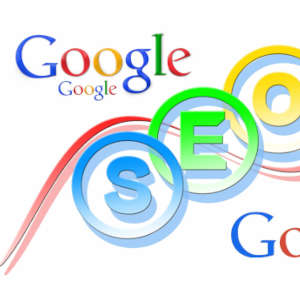
- March 1, 2023
- Comments: 0
- Posted by: user
Do a search in Google for a product or service that your business provides. But make sure that you are doing it in an “incognito” or “private” page (Google knows what you look at and uses that to provide an answer to your query. Doing it this way means you would see what I, or anyone else, would see in a Google search if they had never heard of you before). Does your website come up?
Probably not. The first page will have ads (which you can also have but that’s for another blog) and “organic” search results. Mostly you will see well known and large businesses.
As a small business owner, it can be a daunting task to compete with larger companies in terms of online presence. However, by investing in search engine optimisation (SEO), you can drive traffic to your website and reach your target audience more effectively. Here’s how small businesses can benefit from SEO and how to get started.

What is SEO and how can it help small businesses?
SEO (search engine optimisation ) is the process of optimising your website to improve its ranking on search engines such as Google, Bing, and Yahoo. By improving your website’s visibility, you can attract more visitors, generate more leads, and increase your sales. Here are some of the benefits of SEO for small businesses:
Increased visibility – By improving your website’s ranking, you can attract more visitors and potential customers to your site. It’s just like the old days of the Yellow Pages. Calling yourself AAAAA Aardvark Plumbing means you’re at the top of the page and gets you more work. Being at the top of Google is the same but more so.
Targeted traffic – By optimising your website for specific keywords, you can attract visitors who are interested in your products or services.
Credibility – A higher search engine ranking can increase your credibility and reputation in the eyes of potential customers. People think that if Google has put you on page one of a search then Google is, in effect, recommending that business. Being at the top is a kind or endorsement.
Cost-effective – Compared to other forms of digital marketing, such as paid advertising, SEO can be a cost-effective way to attract visitors to your website and get you business.

How to get started with SEO for your small business website
Keyword research – Conduct research to identify the most relevant keywords for your business and incorporate them into your website’s content. Be creative. To use plumbing as an example again – “plumbing” is a keyword but a hard one to compete for. Go for keywords that are more targeted – possibly things you specialise in that are rare. “Commercial plumbing” or “Malvern Plumbing” or “same day” plumbing.
On-page optimisation – Optimise your website’s structure, content, and metadata to make it more search engine-friendly. This is not as hard as it sounds. A rule of thumb is – Is it clear and readable? Would a complete stranger understand what I offer, what we do, who we are – just from reading through the website?
Content creation – Create high-quality, engaging content that will attract visitors and improve your search engine ranking. An example of this is this blog you are reading right now. It’s full of keywords for Google to judge what we do and services we offer and (hopefully) is interesting to people and potential clients who are have never heard of Wealthpath Accountants. They are finding out about us from searches for accountant related topics. Have a look at the blogs we have posted. Taxes, employment, technology, etc, etc. They cover a wide range and we can help with all of them.
Link building – Develop a strategy to build high-quality links from other websites to your site. If someone thinks your website has something interesting they will have a link on their website or social media that takes people to your website. This is free publicity but Google sees it as a huge vote for how relevant you are.
Monitoring and tracking – Use analytics tools to track your website’s performance and make adjustments as needed. Google Analytics is free and if you have a website you are nuts if you don’t set up an account. It enables you to see who is visiting your website, what they looked at, where they came from and how they found out about you.

In conclusion, SEO is an essential tool for any small businesses looking to improve their online presence and attract more customers to their website. By following the steps outlined above, you can optimise your website for search engines and achieve your business goals more effectively.
